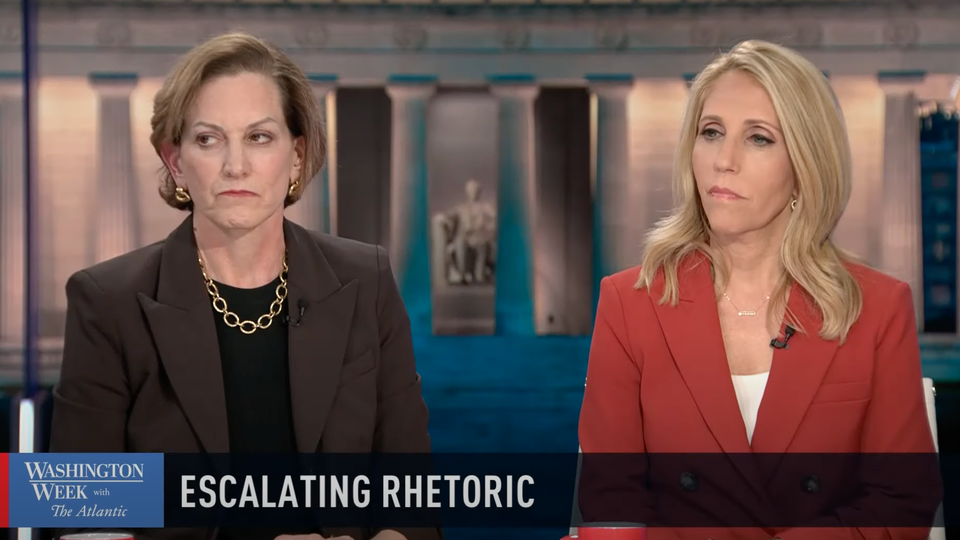Trump’s Escalating Rhetoric
2 min read
With Election Day just over a week away, Kamala Harris is calling Donald Trump a fascist following reports revealing the former president’s deepening dictatorial obsession, including that he expressed admiration for the way that Hitler ran his army. On Washington Week With The Atlantic, panelists discussed how Trump’s language is unlike any other rhetoric used in the modern era of American politics.
Language that Trump has used, such as saying that immigrants are “poisoning the blood of our country” and that his opponents are “radical-left thugs” who “live like vermin,” can be traced back to authoritarian leaders of the 1930s, Anne Applebaum explained last night. “Leaders who use fascist tactics will divide the nation into the real people and the outsiders—immigrants, foreigners, traitors—and seek to create a kind of cult of hatred against them in order to build up the sensibility of the majority,” Applebaum said.
Whether Trump’s escalating rhetoric will have an effect on voters is an open question. According to Dan Balz, Trump’s core base remains loyal to the former president: “What we’ve seen in the creation of Trumpism is a country in which there are followers who accept this as a way to talk about other people and a way to talk about the state of the country,” he said last night.
Many Republican leaders also continue to stick by Trump. According to Jerusalem Demsas, this can in part be explained by the policy gains, especially on abortion, that Republicans have seen in recent years. “Despite the fact that they have distaste for how he engages in politics, [he] has gotten them a ton of things on taxes and on policy that they hold really near and dear,” she said.
Joining the editor in chief of The Atlantic, Jeffrey Goldberg, to discuss this and more: Anne Applebaum, a staff writer at The Atlantic; Dan Balz, a political reporter at The Washington Post; Dana Bash, the chief political correspondent at CNN; and Jerusalem Demsas, a staff writer at The Atlantic.
Watch the full episode here.



